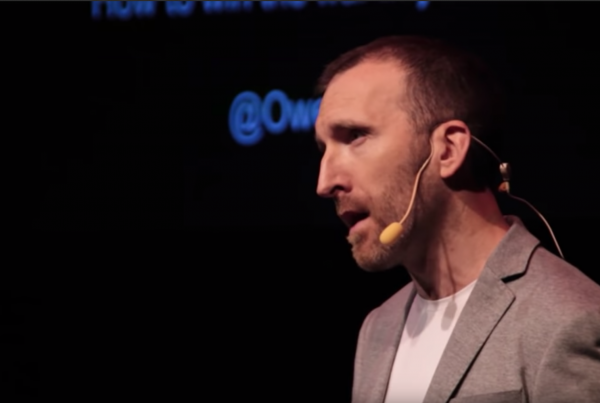Confidence.
It’s the quality that most people want at some stage of their life: the magical elixir, or cure-all, that we think can rid us of all our angsts, worries and problems.
If we were to just be fully confident in ourselves then we could move mountains; we could overcome the challenges we face and achieve our dreams, desires and goals.
Interestingly confidence tends to be a bit of an oxymoron.
When we have confidence we don’t care about it – it becomes a non-issue.
But when we lack it, it suddenly becomes one of the most important yet illusive qualities associated with successful living.
But what actually is confidence?
Is it a feeling, a skill, a mind-set?
And is it something that is innate, or can we deliberately build it?
Well, it’s a large subject but the short answer is that it can be all of the above.
Confidence is Multi-layered.
People tend to think of confidence as a simple, singular entity — something that we either have or don’t have.
When you dig a bit deeper though, you find that there’s a lot more to it than that.
Confidence is not just one thing, it’s many. It has multiple layers to it that can be applicable in some situations and not in others.
Confidence is a feeling, but it can also be linked to a skill. And it can exit as a belief: an inner mind-set that sits in the background of our experience.
Confidence is something we can have naturally and it’s also something we can cultivate, shape and build.
I know this sounds like a contradiction but I don’t think it is.
Confidence has many different elements to it so it can present itself in various different forms.
So let’s take a look at some of these forms, these elements, and explore how we can increase each one to cultivate a rich and multi-layered inner sense of confidence.
Layer 1: Confidence as a feeling

First of all, we can treat confidence as a feeling: a set of sensations we experience in our body.
When we name an emotion – like “confidence” – we are essentially summarising a set of sensations and feelings that are occurring throughout our body.
Labelling is one of the tools we use to understanding and talk about our feelings.
It’s a kind of short-cut. It would take time to accurately describe the sensations that are manifesting in our body so we simplify the process by labelling them. eg. “I’m feeling anxiety, stress, relaxed, happy etc…”
How confidence manifests itself, at the level of sensation, can be different from person to person.
For me, confidence is a strong yet light tingle that spreads across my chest and up into my face.
When i feel it strongly that tingle turns into a buzz. It can even have a little heat to it. When these sensations are activated, I feel energised and motivated to take action.
It sounds little bit weird describing an emotion like this – that’s why we tend to use labels – but it can be very useful to do so.
By moving away from labels and starting to focus your attention at the level of body sensation you can become more skilled at re-creating them deliberately.
If you know what something feels like it opens up the possibility for you to recall how it feels, and by doing so you can re-activate the sensations. To put another way: you can remind yourself how it feels to be confident.
So, at the level of body sensation, what does confidence feel like to you?
Where is it located in your body?
Does it move?
Does it tingle?
Is it warm?
Spend some time exploring this. Take notes if you like.
By deliberately recognising what confidence is like at the level of sensation you can build up your own confidence blueprint making it easier to re-activate.
Layer 2: Confidence as a result of Skill
In addition to being a set of body sensations, confidence can also be “as a result of” a skill.
As strange as it sounds, there is a time and place to lack confidence.
If, for example, you got a job as an airline pilot it wouldn’t be appropriate for you to walk in on the first day, proclaim how confident you are about flying a plane and then attempt to do so without the slightest bit of training.
If you were allowed to do so then my guess is you’d confidently crash!
Sometimes having a lack of confidence is there for a reason: you’re not confident because you haven’t earned the right to be so yet.
Whenever we enter a situation that’s unfamiliar it can make us feel mildly insecure. This is a natural, animalistic response because we aren’t familiar with our surroundings — there could be dangers unknown to us so we put ourselves on kind of “mild alert”.
We then have to go through a process of learning and acclimatisation in order to restore balance; we need to learn how to behave in the situation in order for it to be deemed comfortable and familiar.
For example, if we are starting a new job we need to figure out how to interact with our co-workers, and we also need to learn how to do the job.
Until this happens there is often an awkward feeling of “not knowing”: a mild insecurity because we haven’t yet built up vital experience relevant to the situation.
When people feel this, they can sometimes panic and jump to the conclusion that they’re going through a “dip” or even a “crisis” of confidence.
What’s closer to the truth though, is that they’re simply going through a process of learning and re-acclimatisation; they haven’t gained enough context specific experience and skill yet to feel fully confident.
Appreciating this distinction can make a big difference.
It’s often the case that a lack of confidence is a sign that you need to develop a certain area of your skill set, or gain more context specific experience.
You regularly see this with people who lack social confidence. There are many possible reasons for this but it’s often because they lack the repertoire of social skills to successfully manage the situation. Improve their social skills, and they start to develop confidence.
So confidence can also be “as a result of” a skill; it can be linked to building and gaining relevant experience and ability.
To test this for yourself, think of an area in your life where you aren’t as confident as you’d like to be.
Then explore the following questions:
- What skill do you have to develop – in this area – that would allow you to be naturally confident?
- What experience would you have to build up that would allow you to be naturally confident?
When we look beyond the surface, sometimes a lack of confidence is actually a sign of lack of competence; it’s a sign that we need to step up and develop further.
Layer 3: Confidence as a Belief
 A third layer to confidence is the layer of Belief – sometimes people refer to this as mind-set.
A third layer to confidence is the layer of Belief – sometimes people refer to this as mind-set.
Sometimes we can feel confident – in our body – but we don’t believe we are a confident person.
And sometimes we can believe we are a confident person yet we don’t feel confident in the moment.
One way to think about confidence “as a belief” is to see it as background confidence.
It’s the opinion that we have, often buried in our subconscious, regarding how much value we believe we possess as a human being.
We often talk about this indirectly using terms such as “self-worth” or “self-esteem”.
When we describe ourselves as having low self-worth, or low self-esteem, we are essentially saying that we have a low opinion of our value: that we don’t have much to offer as a person.
This can be a crucial but often hidden layer of confidence.
It can also come across as a “quiet confidence” — other people can sense it even if you’re not striding about with your chest puffed out and head held high.
Our ability to experience and give off a vibe of confidence long-term, will be heavily linked to the opinion we have of our worth and value as a person.
In general, the more we value ourselves, the more background confidence we tend to have.
When this is the case, we might not feel confident in the moment but deep-down we still believe that we have a lot to offer so we internally describe ourselves as being confident.
To access more of this background confidence it can be useful to explore the following questions:
- What value do you possess that you may not currently be giving yourself full credit for?
- What value could you develop in the future?
Write out a list of all the abilities, qualities and useful personality traits you possess, and then spend some time giving yourself full credit for each of them.
This is no time for bashfulness. Step into each of them and internally blow your own trumpet.
It’s a simple exercise but one that can be very powerful. We often negate much of the value that we possess so it’s important to re-affirm it every now and again.
It boosts our inner sense of value which then leads to a higher level of background confidence.
Summary
So there we have it: confidence as a multi-layered experience rather than a single entity.
How did you shape up in each of the layers?
Undoubtedly, there are more layers than the ones described in this article, but increasing your awareness of these three is a great start when it comes to cultivating a rich and solid sense of self-confidence.
What do you think? Are there any more layers that you think should be included?
All the best, and hope you have a great week.
Steven Burns
The Scottish Centre of NLP




